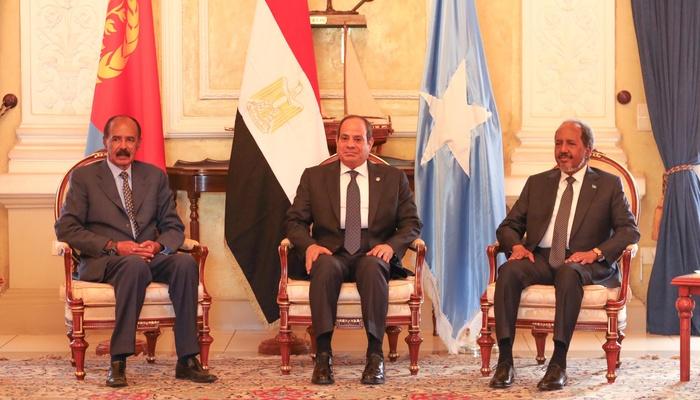The AfCFTA Business Forum, a look into Africa’s future
From 16th to 19th April 2023, Cape Town hosted the first Business Forum of the African continental Free Trade Area. The AfCFTA is one of the main projects of “Agenda 2063”: The Africa We Want. The mandate of the AfCFTA is to boost intra-African trade, regulating the opening of borders and the creation of a free trade area between African countries. The aim of this agreement is to consolidate the processes of regional and continental integration by fostering a process of productive growth that will enable Africa to integrate more efficiently into international trade, harmonizing customs and tariff procedures and abolishing duties on 97% of goods by 2030.
It is estimated that AfCFTA has the potential to both increase intra-African trade by 52.3%, via the removal of import duties, and double trade, by reducing non-tariff barriers. According to the forecasts the AfCFTA will allow therefore to expand the dimensions of the African economy of 29 trillion dollars within 2050. Moreover, facilitating and exploiting the commercial potential of the Continent, the AfCFTA will allow to create new jobs and consequently an increase in income and an improvement in the lives of Africans.
To date, the agreement brings together 55 African Union (AU) countries and 8 regional economic communities. The AfCFTA officially entered into force on May 30, 2019, after 24 Member States deposited their Instruments of Ratification, and the official commencement of trading under the AfCFTA was in January 1, 2021. Although individual states have not yet started trading under the terms of the agreement, the AfCFTA Secretariat, headed by Secretary General Wamkele Mene, has promoted, since the entry into force of 2019, several initiatives aimed at involving all actors to work towards the creation of the largest common market in the world. These initiatives include the AfCFTA Business Forum, held in Cape Town this April. The aim of the Business Forum was therefore to boost and accelerate the implementation of AfCFTA, involving African entrepreneurs in order to create awareness of current business and investment opportunities in every African country, and thus creating a common thread between companies and funding opportunities.
The event held in Cape Town represented the first occasion in which strategic investors, the African private sector, financial institutions, investment promotion agencies, chambers of commerce, entrepreneurs, Heads of State and Government and AfCFTA partners, met all together. The sectors involved in the event were the agri-food, the automotive, the pharmaceutical, the digital commerce, the payments and the transport sectors.
Among the topics discussed, there were the acceleration of the implementation of AfCFTA in the current geo-economic context; industrialization; the promotion of agriculture and the agri-food chain within the AfCFTA; the implementation of the local pharmaceutical production; the expansion of digital commerce and payment systems; and investment protection.
During the discussions the private sector emerged as the “economic engine” of African trade. In fact, the discussions highlighted how the full involvement of the private sector is central and critical to the implementation of the AfCFTA. The agreement allows the creation of a market of 1.3 billion people and the private sector must be prepared to make it work effectively. This involves not only the expansion of African businesses but also innovation and job creation. However, several challenges need to be addressed: including the lack of access to finance, outdated or insufficient infrastructures, and the high cost of “doing business”. Investments in infrastructure, energy and transport are therefore needed to reduce business costs. Moreover, the promotion of regional value chains and the development of local industries to increase intra-regional trade are needed. For this reason, during the Forum the private sector was urged to identify investment opportunities in value chains, which would allow to exponentially increase intra-African trade.
Discussions also revealed that nowadays many investments are focused on building the essential infrastructure needed, such as fiber optics across the continent for the fintech industry, which is an important facilitator for market expansion and cross-border trade. Other operational tools such as PAPSS and other digital solutions are being developed to allow a continuous flow of data, capital and services. At the moment there is a lack of regulatory harmonization, but a “Digital Trade Protocol”, is under development, with the aim of harmonizing rules and regulations to augment intra-Africa trade.
The discussion also emphasized the strong dependence on imports of agricultural and food products (over 50 billion dollars) that could be produced in the Continent. In this regard, the AfCFTA Secretariat was urged to work with governments to implement policies and support systems aimed at encouraging people to consume local products.
In conclusion, this first Business Forum provided important discussions on how to strengthen the AfCFTA, with a focus on value chains, digital commerce, and the pharmaceutical and agri-food industries. It is therefore expected that clear action plans by the AfCFTA Secretariat will emerge from these discussions, in agreement with the African governments.
However, many challenges need to be addressed. Disparities in economic conditions in many countries of the Continent and operational difficulties, put a strain to the vision of the African Union which aims to grow in full economic union with its member states and a single currency, a necessary condition to stimulate trade and economic development. At the same time, some African countries, such as Ghana, are experiencing severe economic crises, due to external shocks caused by both the COVID-19 pandemic and the war between Russia and Ukraine. In this context, despite the mentioned difficulties, the creation of an efficient intra-African trade is essential to addressing internal economic crises, which are more than frequent in the African context, and which are mitigated mostly through external aid.









